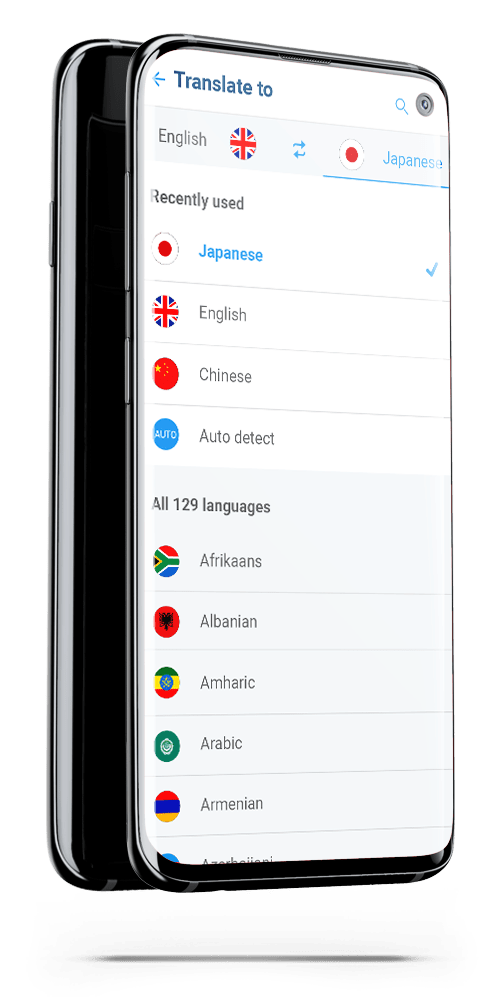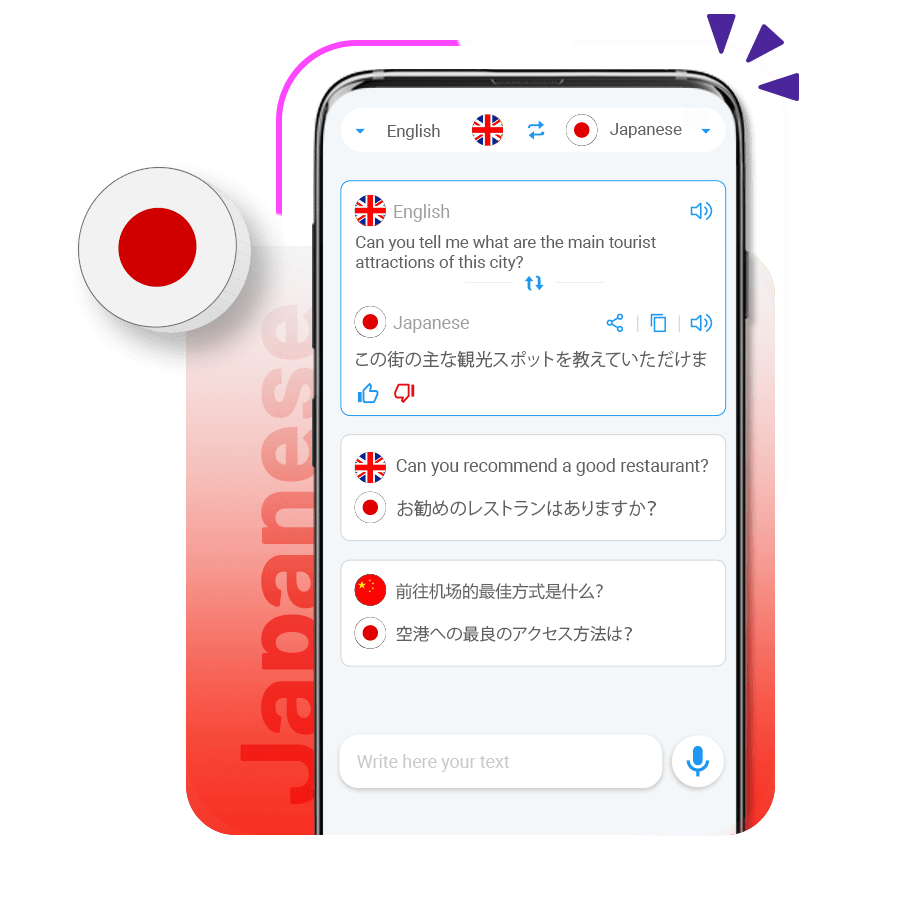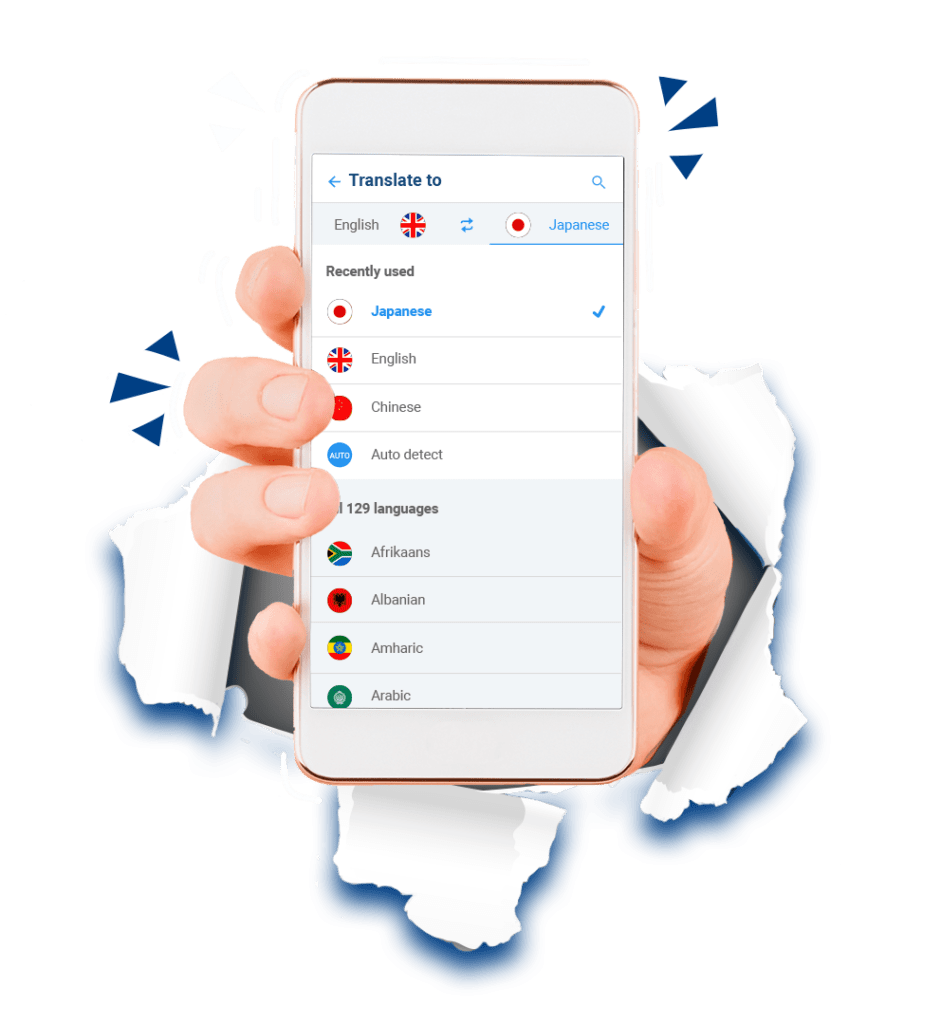Why is it important to be able to translate into the Japanese language?

Where is it spoken?
Japan – Japanese immigrant communities in countries such as Brazil, the United States, the Philippines, China and Peru.

Nº of speakers
128 million

Linguistic family
Japonic
In today’s world, proficiency in Japanese is crucial not only due to Japan’s economic and technological importance but also because of its rich culture and traditions. With 128 million speakers, the Japanese language provides access to one of the largest and most technologically advanced economies in the world.
Proficiency in Japanese is essential in fields such as technology, robotics, automotive, and animation, where Japan is a world leader.
Japan is renowned for its substantial contributions to science and research, making the Japanese language essential for accessing cutting-edge research and international collaborations in these fields.
Culturally, the Japanese language provides a unique insight into a profound artistic and literary heritage. From classical literature and Noh theater to modern and globally popular manga and anime, the Japanese language is crucial for experiencing these art forms in their most authentic form.
Japan has considerable influence in fashion, food and design, aspects that attract audiences around the world.
In the tourism industry, knowledge of Japanese language can greatly enhance the traveler’s experience. Japan attracts millions of tourists annually who are interested in its history, architecture, and natural beauty. Translation and communication in Japanese language can provide a deeper immersion into the culture.

The most translated languages into Japanese language
Learn to speak in Japanese like a true native
Basic expressions in Japanese language
Advanced vocabulary
| Japanese | English |
|---|---|
| こんにちは (Konnichiwa) | Hello |
| ありがとう (Arigatou) | Thank you |
| すみません (Sumimasen) | Excuse me |
| 愛 (Ai) | Love |
| 幸せ (Shiawase) | Happiness |
Other curiosities
- Japanese uses three writing systems: Hiragana, Katakana and Kanji.
- Kanji imported from China: Kanji characters were adopted from Chinese. Each character has a unique meaning and pronunciation.
- Hiragana and Katakana: Japanese words are written in Hiragana, while foreign words and onomatopoeias are written in Katakana.
- No grammatical gender: Japanese does not use grammatical gender or definite/indefinite articles, unlike many other languages.
- Levels of politeness: The Japanese language has several ways of expressing politeness and respect, known as “keigo”.
- No plurals: Japanese nouns do not have a distinct plural form.
- Different counting vocabulary: Different words are used to count objects, people, and animals depending on their shape and nature.
- Buddhist influence: Japanese terms and expressions often come from Buddhism. They are usually simple and easy to understand.
- No conjugation by person: Simplifying grammar involves avoiding verb conjugation by person.
- Multiple linguistic borrowings: Japanese has borrowed numerous words from languages like English, Portuguese, and German.
- Vertical and horizontal writing : Japanese writing is traditionally vertical, from top to bottom and right to left, although horizontal writing is also used. This style has been in use for centuries and is still common today.
- Language with honorifics: In Japanese social relations, honorifics such as “-san”, “-sama”, “-kun”, and “-chan” are crucial. These honorifics demonstrate respect and formality in various social situations.
- Influence on Pop Culture: Japanese is crucial in the world of anime, manga, and video games. These media have many specific terms that are unique to them.
- Japanese Sign Language: Japan has a unique sign language that differs from sign languages used in other countries.
We offer Japanese language support in multiple services


Audio and Text Translation
Japanese language translator among over 125 available languages.

Remote Conversation Translation
Speak and translate to Japanese with people anywhere in the world remotely.

Real-time Translation
Speak freely. Translate Japanese instantly in real-time.

Audio Playback of the Translation
Listen to the audio of the Japanese translation to improve your pronunciation.

Voice Recognition
Speak freely and your app will translate for and to you.











